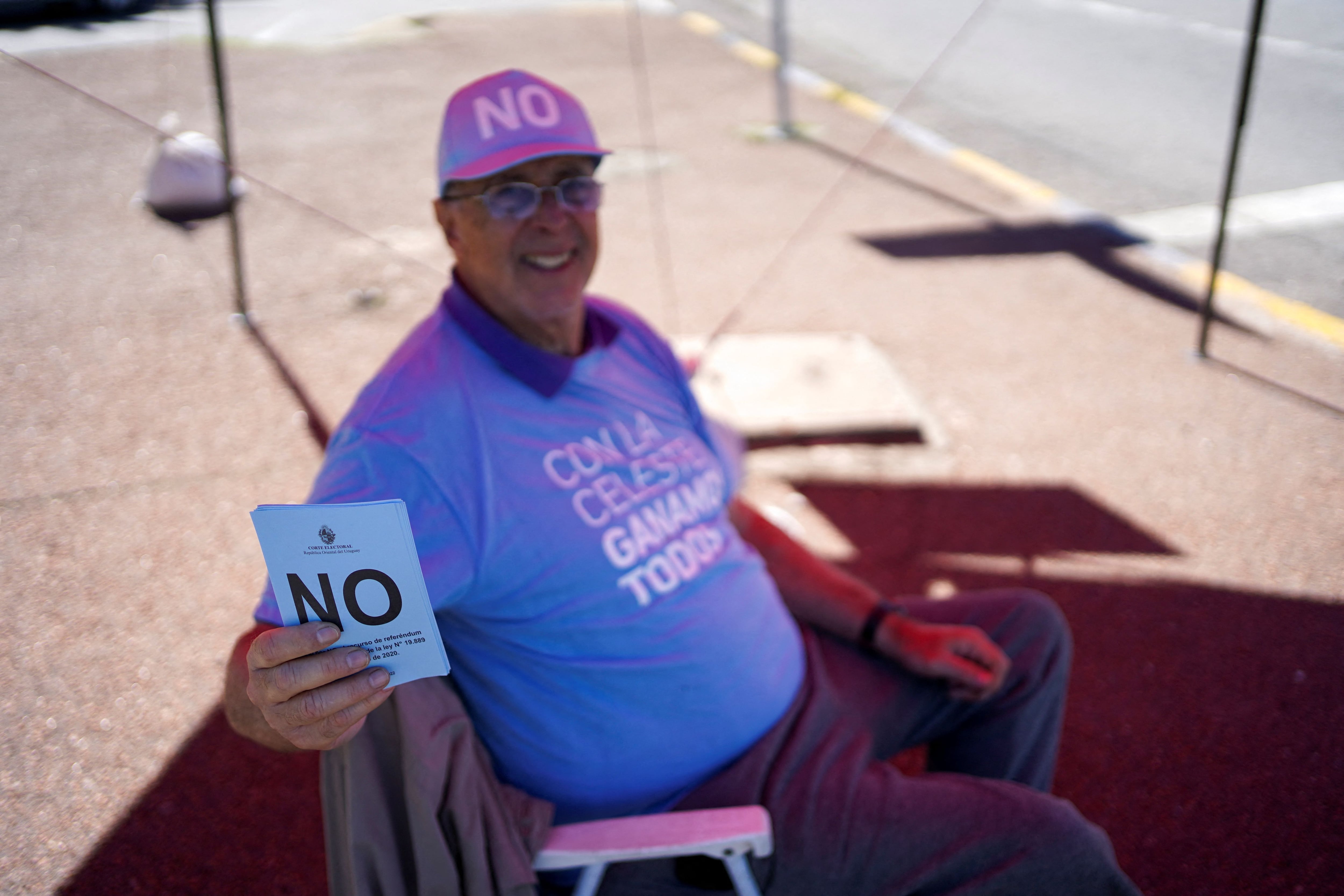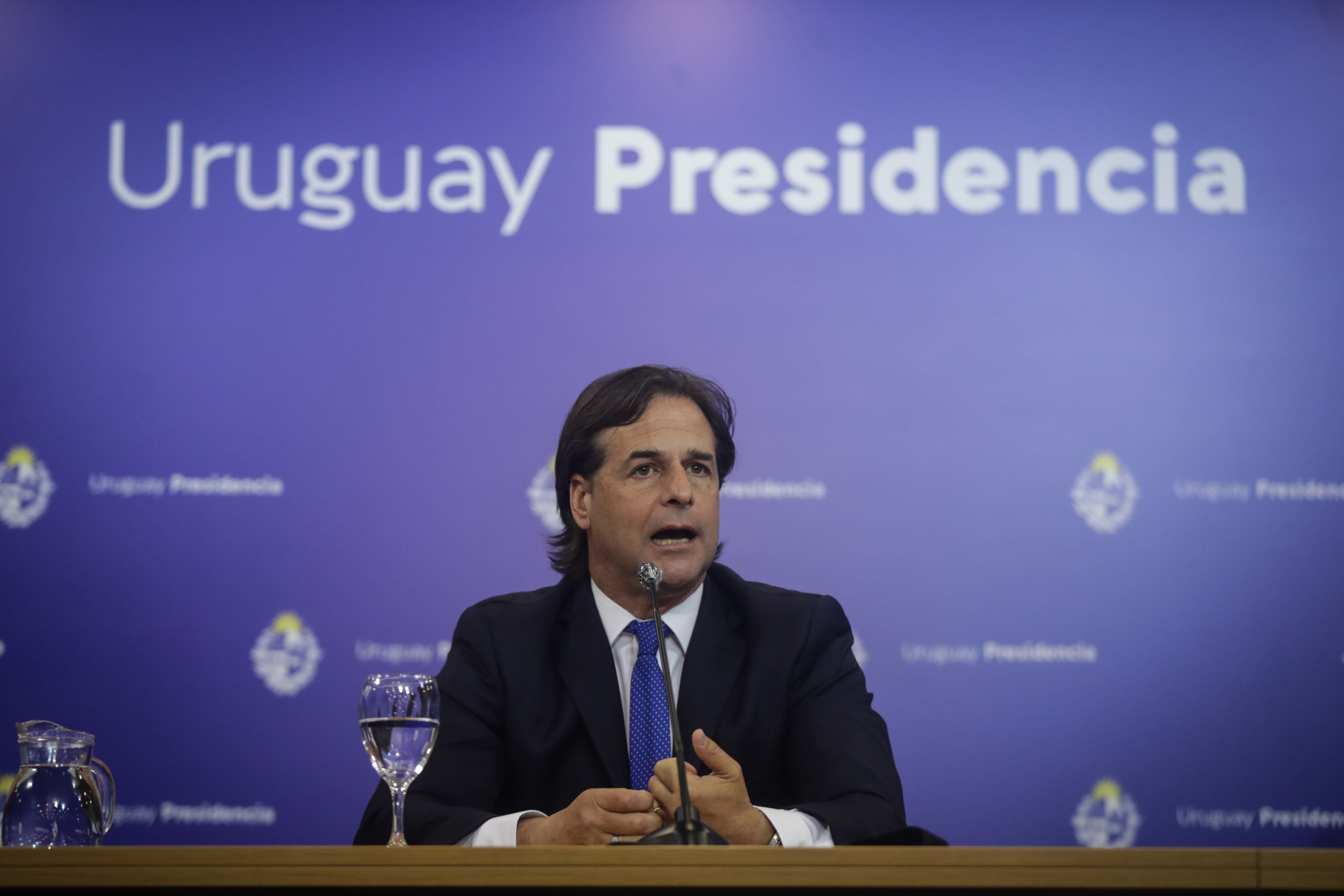
This Sunday, March 27, Uruguay held a referendum to submit to popular consultation the Law of Urgent Consideration (LUC), in which those who were in favor of repealing the 135 articles of the LUC and those who supported the “No” to maintain them decided between the option of “Yes”.
The Uruguayan president is the main driver of this law, called 'omnibus' because of the variety of issues it covers.
While Lacalle Pou has highlighted the improvements achieved in public safety, education, labor - mainly in the right to strike and the regulation of pickets - in the regulation of adoptions or in financial freedom, social and political organizations consider that the 135 articles under discussion violate important rights of the Uruguayan population.
The 'Yes' was promoted by social and political organizations, including the trade union central, the PIT-CNT, and the Frente Amplio, a left-wing coalition that ruled Uruguay between 2005 and 2020, following a multi-month campaign of attracting signatures (up to 25% of the necessary census), which led to the holding of this referendum.
This is a set of 476 articles that changed several norms, the flagship law of the government of Luis Lacalle Pou.
There were several areas that changed. For example, articles related to public safety doubled the penalties for adolescents who commit offences, increased the sentence for drug trafficking and created new crimes.
With regard to education, decentralized councils were eliminated, new mechanisms for validating teacher training and new statutes for teacher and non-teacher officials were introduced. Security and education reforms are, within the law, not only the hottest issues at the public level, but also the proposals that most identify the Lacalle Pou government.
In other areas, regulations appeared on the right to strike, the new unsecured rental regime, the fixation of fuel prices, the easing of controls on money laundering, among several others.

On December 8, 2021, the Electoral Court counted the 671,544 signatures needed to enable the referendum, which was voted on Sunday.
From now on, the Uruguayan Parliament has been divided: on the one hand, by the parties with more right-wing ideologies (the National Party, the Colorado Party, the Independent Party, the Open Cabildo and the People's Party), this so-called “multicolor coalition” and, on the other, by the left-wing party grouping, called the Broad Front.
With the triumph of the “No”, the 135 articles on trial were maintained and continued to be applied as before.
Some consider that this referendum represents a kind of thermometer after the two years of Lacalle Pou's presidency, the second leg of his government will be guided by the result of this election.
The Uruguayan Executive was strengthened after the referendum, after the 'No' won in a consultation that showed, as was the case in the 2019 elections, the division into two political halves of the population of the South American country.
Law 19,889, which covers - including public safety, labor issues, education, financial freedom or number portability - was enacted in July 2020, just three months after the beginning of Lacalle Pou's term of office (2020-2025).
Although he did not actively participate in the campaign events that toured the country, he did defend the project in the first person and even gave his final speech last Wednesday at the Executive Tower (Government Headquarters).

In the same vein, this Sunday, he appeared when there was no longer any possibility that the results could change and he drew his face, once again, by a law that, he said, “gives more rights, more freedoms and more guarantees”.
“Stage passed. Tomorrow we continue with the same optimism and the same desire, with a coalition that has shown firmness in adversity,” he said without excessive triumphalism because, as he had announced last Wednesday, he considered that there was “nothing to celebrate”.
Lacalle Pou showed firmness to undertake the reforms that, protected by the result of the referendum, it seeks in matters such as social security, education, settlements and, even, pointed to a future reduction in taxes.
Faced with the demands of “dialogue” on the part of the left, the president claimed “Parliament as the place where different opinions are synthesized”, while saying that there were already talks in the legislative branch that allowed the modification of 279 articles of the LUC before its promulgation.
In the fourth referendum in history and separate from the presidential elections, it was the second time that the 'No' was imposed on the repeal of the law that was subject to consultation.
The previous one was in 1989 when the Law on the Expiration of the State's Punitive Claim was voted on, which had been passed in 1986, and in which the yellow 'No' ballots won 55 per cent of the votes, while the green vote for 'Yes' reached 41 per cent.
(With information from EFE)
KEEP READING:
Últimas Noticias
Debanhi Escobar: they secured the motel where she was found lifeless in a cistern

The oldest person in the world died at the age of 119

Macabre find in CDMX: they left a body bagged and tied in a taxi
The eagles of America will face Manchester City in a duel of legends. Here are the details

Why is it good to bring dogs out to know the world when they are puppies




